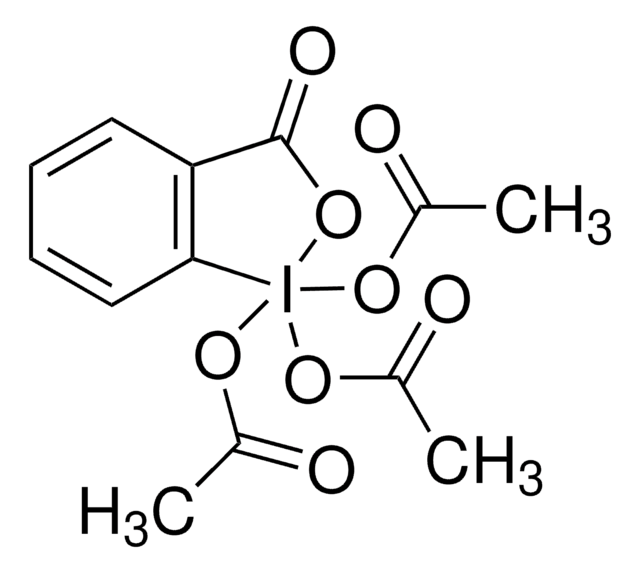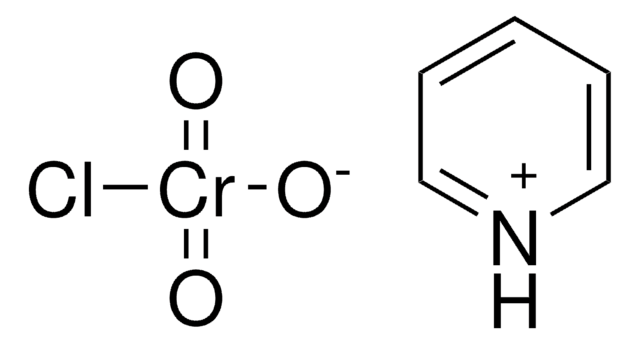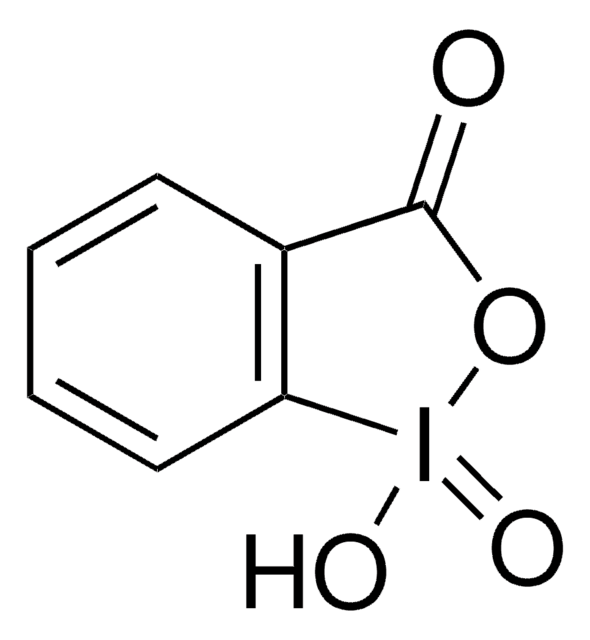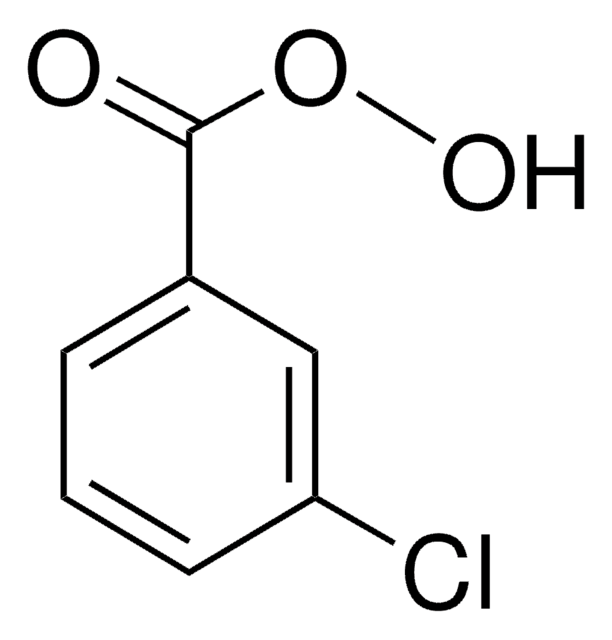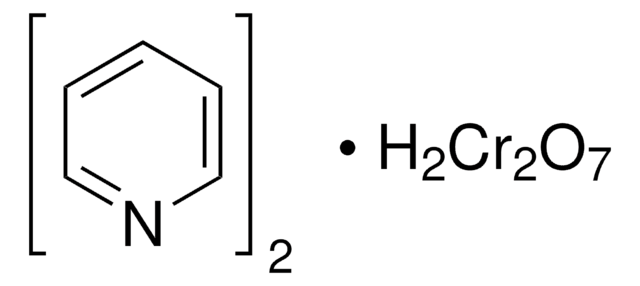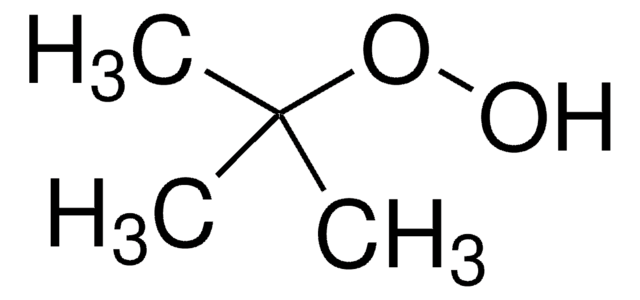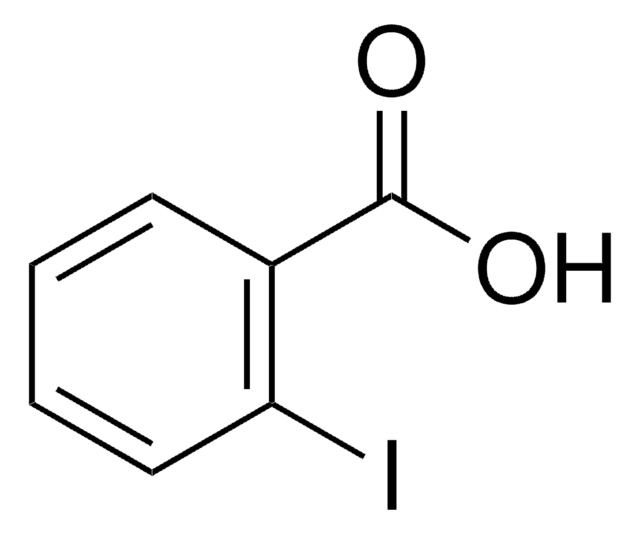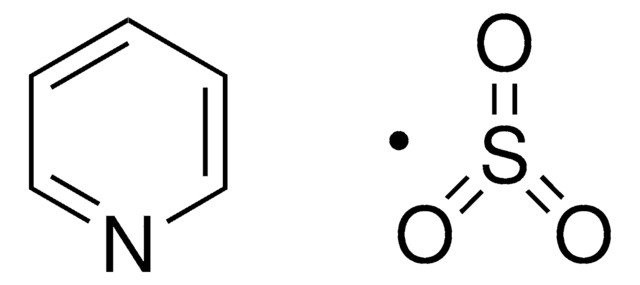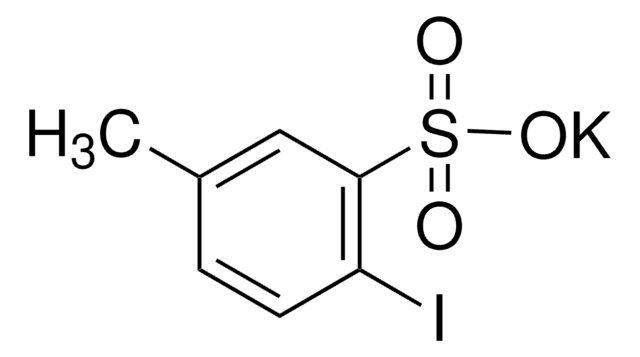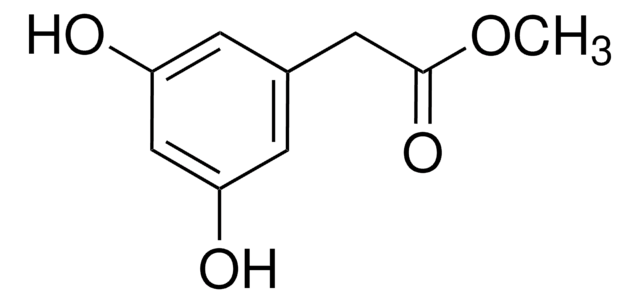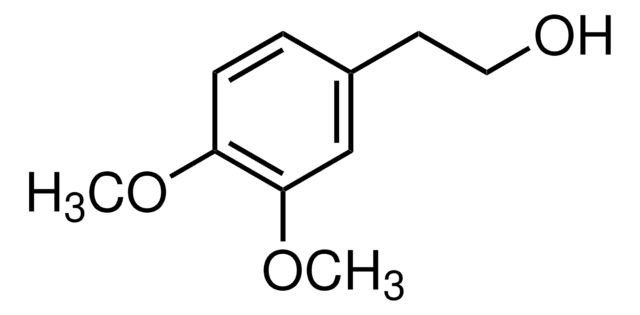274623
Dess-Martin periodinane
97%
Synonym(s):
1,1,1-Tris(acetyloxy)-1,1-dihydro-1,2-benziodoxol-3-(1H)-one
About This Item
Recommended Products
Quality Level
Assay
97%
reaction suitability
reagent type: oxidant
mp
130-133 °C (lit.)
storage temp.
−20°C
SMILES string
CC(=O)OI1(OC(C)=O)(OC(C)=O)OC(=O)c2ccccc12
InChI
1S/C13H13IO8/c1-8(15)19-14(20-9(2)16,21-10(3)17)12-7-5-4-6-11(12)13(18)22-14/h4-7H,1-3H3
InChI key
NKLCNNUWBJBICK-UHFFFAOYSA-N
Related Categories
General description
Application
- For 1° and 2° alcohols to aldehydes and ketones.
- In the synthesis of N-protected α-amino aldehydes from the corresponding N-protected β-amino alcohols.
- To synthesize alkynyl oxoaldehyde probe (AlkMGO).
Features and Benefits
- milder reaction conditions (room temperature, neutral pH)
- shorter reaction times and higher yields
- high chemoselectivity
- tolerance of sensitive functional groups, and a long shelf life
- simplified workups
Signal Word
Danger
Hazard Statements
Precautionary Statements
Hazard Classifications
Eye Irrit. 2 - Ox. Sol. 2 - Skin Irrit. 2 - STOT SE 3
Target Organs
Respiratory system
Storage Class Code
5.1B - Oxidizing hazardous materials
WGK
WGK 3
Flash Point(F)
Not applicable
Flash Point(C)
Not applicable
Personal Protective Equipment
Certificates of Analysis (COA)
Search for Certificates of Analysis (COA) by entering the products Lot/Batch Number. Lot and Batch Numbers can be found on a product’s label following the words ‘Lot’ or ‘Batch’.
Already Own This Product?
Find documentation for the products that you have recently purchased in the Document Library.
Customers Also Viewed
Our team of scientists has experience in all areas of research including Life Science, Material Science, Chemical Synthesis, Chromatography, Analytical and many others.
Contact Technical Service